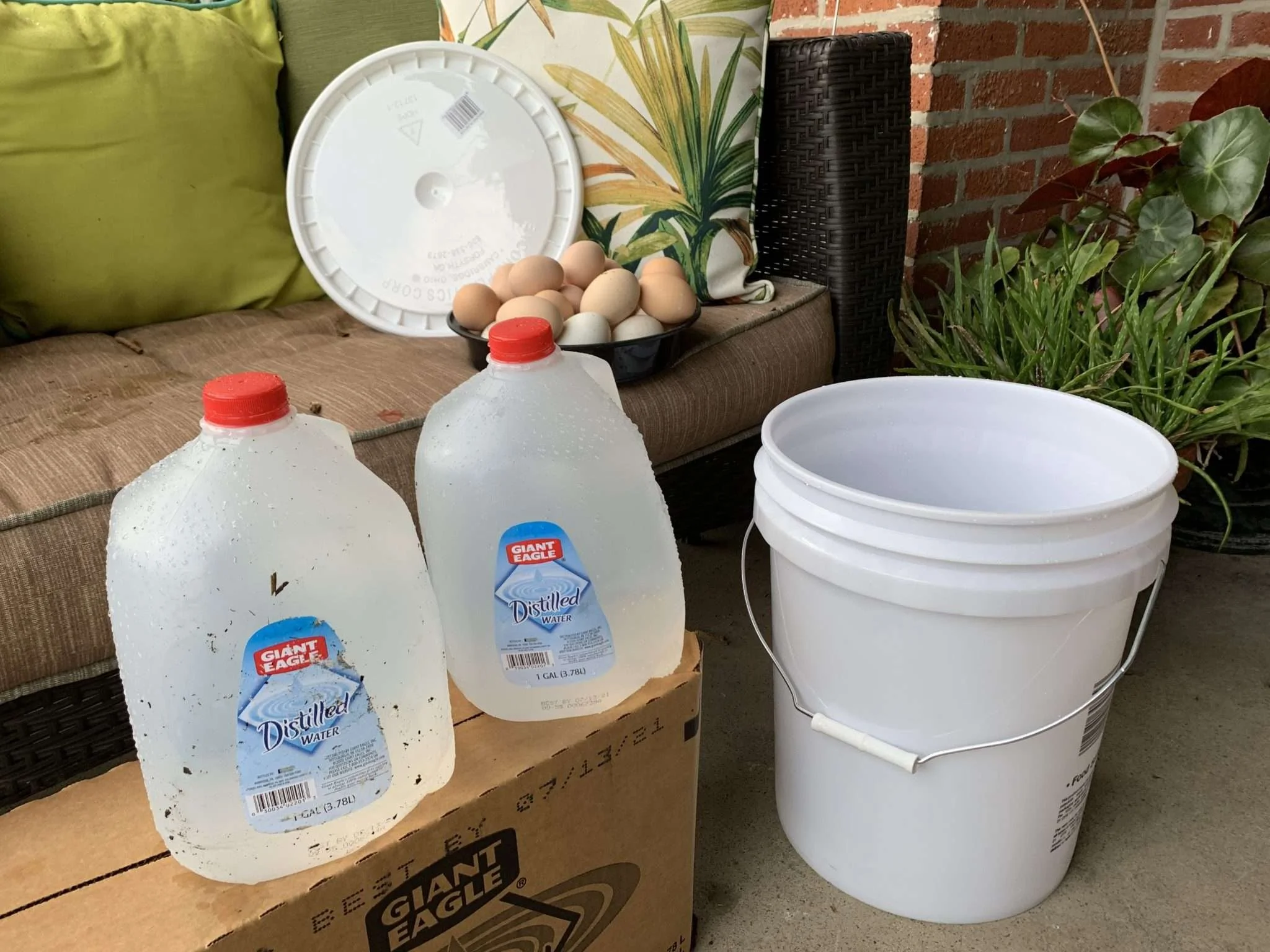Preserving Eggs 1860 Style

Every summer I waste eggs that I don’t get out to people in need or I can’t eat fast enough. I collect fresh chicken and duck eggs. I bring them in to the house confident that their natural bloom will protect them for weeks there on the shelf. One big problem; summer heat. Mezzacello st this phase has no AC. During the day, temps in here can reach 30C (86F) and in that heat the eggs go bad quickly.
So how do I solve this dilemma? I refuse to refrigerate them because there are just too many. So I did some research. How did the people who built this farmhouse deal with this problem? Slaked Lime and distilled water, that’s how. Lately Rick has been #Addicted to James Townsend and son’s YouTube Channel 18th Century Cooking. This have to admit, #JohnTownsend is a compelling host. I can see everything he tries working here at Mezzacello. That’s how I discovered the episode on preserving eggs. Although I discovered it there, @HomesteadingFamily has a better tutorial here.
So the basic requirement are:
- A food grade 5 gallon bucket with a tight fitting or hermetically sealed lid
- 2 quarts of DISTILLED water
- 2 oz by weight Hydrated Lime
- Fresh, clean, unwashed chicken and duck eggs
- Put the lime in the bucket.
- Add the water. Mix the solution.
- Start adding eggs. Ensure that the water level remains higher than the eggs.
- Add 1 quart distilled water and 1 oz by weight of hydrated lime if you need to.
- Seal the bucket.
- Store in a cool, dry place (like on a shelf in the cellar).
That’s it. You can add and remove eggs at will. They MUST be free of mud and feces and unwashed - so store bought eggs will NOT work. Apparently there is a 100% success rate after 24 months. I’ve always wondered how the previous generation preserved all the eggs they must have collected. Now I know. I’ll let you know how this goes.


